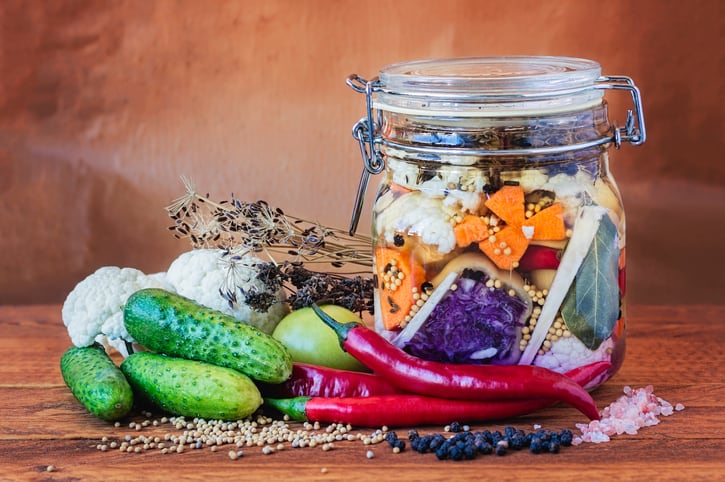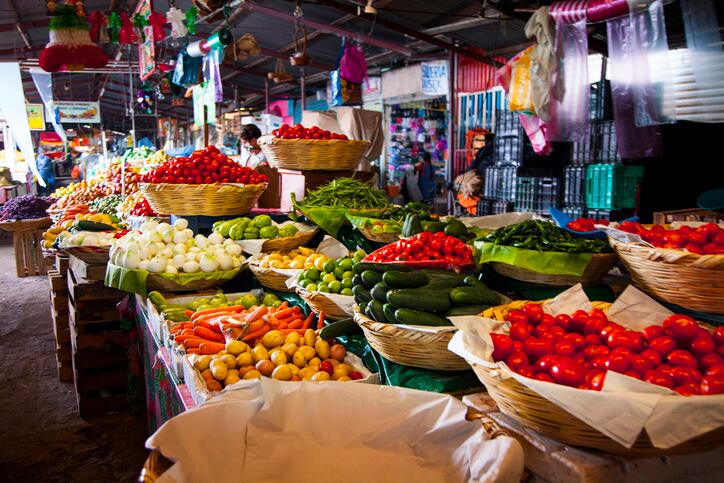About 40,000-50,000 people every month in the UK search the internet for sauerkraut and around 160,000-170,000 search for kimchi, said Adam Goldwater, director of Loving Foods, which specialises in producing organic, raw, fermented, food and drink.
The success of a restaurant like Noma, four-time winner of the title of World's Best Restaurant and where every dish includes some form of fermentation, also illustrates the massive potential for the sector, he said.
“I think people are looking a lot more to diet and lifestyle as a way to solve some of the health challenges that we’re facing as a society and they’re reading about fermentation and gut health and microbiology and they’re going out and experimenting.”
He added people are wrong to think of it as a fresh innovation. “We talk about fermentation as a new trend, but it one of the oldest trends around. Our ancestors were not fermenting food for their health: they were doing it to preserve food before refrigerators were invented.”
Demand brewing for fermented products
Fermentation taps into other market trends, such as food waste and energy concerns, and a desire for authenticity and traditional methods. But a lack of consumer knowledge exists, which presents both challenges and opportunities.
“There’s a real disconnect between people saying this is something they’re interested in, but also a lot of people not fully understanding what fermented foods are,” said Kiti Soinine, category director for UK food & drink research at Mintel, which gathers information about consumer trends. “Clearly there is a huge knowledge gap there which I think needs addressing.”
Goldwater agreed that the average consumer “isn’t quite ready to take that step yet [to ferment and preserve surplus food].”
Fermented producers are looking to shake up the condiment aisle
One solution could be supermarkets. They are keen to explore fermented products, said Tom Lee, editor of Food Spark, which looks at innovation across the food industry, even in an environment of trimmed down SKUs.
“A lot of developers and buyers we speak to at the supermarkets are looking for products around things like plant-based fermentation. They are constantly on the look out for exciting products in this area because they are emerging trends and therefore maybe less affected than more traditional items by range trimmimgs.”
“The condiment aisle is ripe for renewal,” agreed Tanya Alexander, founder of Tickle Pickles, which makes fermented pickle products. “It’s a sugar-laden aisle, and there’s a historical irony in that because chutneys were traditionally fermented. Now they are not, they are pasteurised with added sugar.”
What’s more, the potential for products is endless, she said. “There is a host of recipes because as a species we’ve been fermenting for thousands of years and every culture has some tradition of fermentation. If you add that up, there are thousands of vegetable, fish, meat, dairy and drinks ferments, from the pickles of Japan, to the achars of India and stuffed aubergines of Russia.”
She adds that the process of fermentation is also a very energy efficient process. “There’s no cooking, there’s reduced refrigeration. You’re using the whole vegetable, even the peel.”
Could authenticity be devalued as fermentation goes mainstream?
But is there a risk that these values of authenticity, quality and tradition are cheapened as they move into the mainstream?
No, said Goldwater. “I think we’ve already had those products and we’ve been eating them for years. Your typical pickles that you find in the supermarkets are the mass manufactured versions of what our ancestors were doing. We’re now starting to see the real stuff coming through to hopefully replace that. This is the change that is happening now.
“Our biggest challenge over the past two years has been to scale and produce at amount that can get us into larger supermarkets – but not cheap. One of our brand values is ‘no shortcuts’”.
Alexander agreed that consumers are unlikely to accept fermented products that are not authentic. “It’s the lack of chemicals and industrial processes that customers are attracted to,” she said. “People want to feel more connected to their food. They don’t want big industrial processes with lots of chemicals. Natural fermentation answers that desire.”




